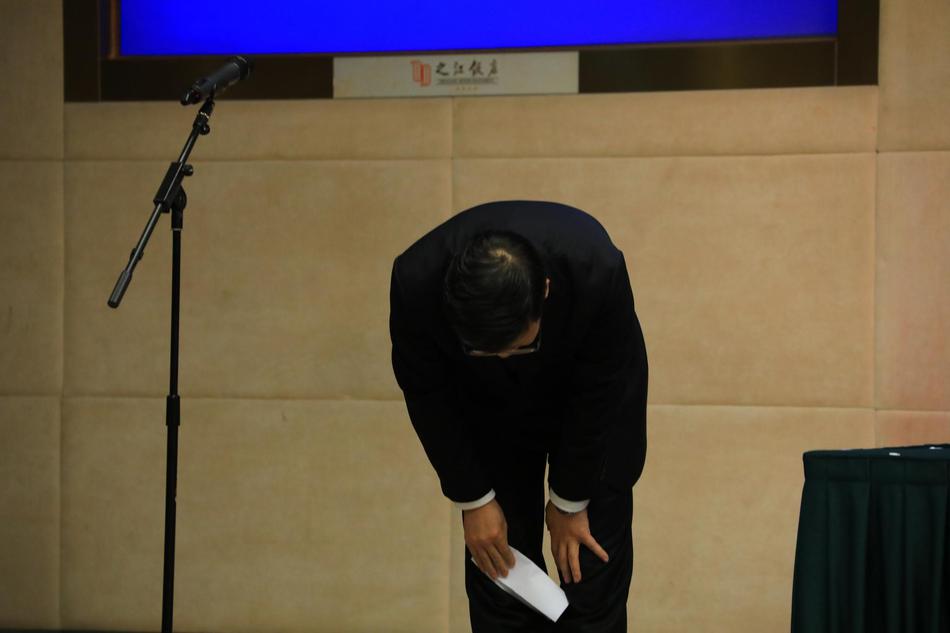【】
There is poetry in the fact that when the Cassini spacecraft burns up in Saturn's atmosphere on Friday, ending its mission, the bus-sized spacecraft will become a part of the planet it has admired from close range for 13 years.
But as with all things involving spaceflight, the reason for Cassini's collision course with Saturn is nothing if not practical.
SEE ALSO:How Cassini quietly transformed our understanding of the solar systemCassini is quickly running out of rocket fuel, and if left to its own devices, the orbiter would wander around the Saturn system uncontrolled, eventually crashing into whatever body that's unlucky enough to be in its way.
This means that the probe could smash into one of the planet's potentially habitable moons. And that won't work for the people who control it back on Earth.
Via GiphyInstead of allowing Cassini to crash where it may, scientists have programmed the spacecraft to plunge into Saturn's atmosphere all in the name of protecting the planet's natural satellites.
"Cassini is ending its 13-year tour of the Saturn system with an intentional plunge into the planet to ensure Saturn's moons -- in particular Enceladus, with its subsurface ocean and signs of hydrothermal activity -- remain pristine for future exploration," NASA said in a statement.
On Earth, there's life basically anywhere there's water, so NASA is particularly protective of other worlds that may have water on them or within them.
In other words, NASA wants to keep Enceladus, Titan, and other moons in the Saturn system untouched because who knows what a crash-landing from a human-made probe could do to any native alien life that might be budding there.
And of course, we wouldn't know much of anything about Enceladus and Titan without Cassini's dogged work exploring Saturn and its many moons.
But beyond concerns about interrupting the lives of microbes, NASA and other space agencies try to take a "leave no trace" approach to space exploration when they can, opting for controlled crashes into planetary bodies when they have to park a spacecraft somewhere after a (hopefully) long mission.
Cassini has been exploring Saturn since 2004 when it arrived at the ringed planet. The mission launched in 1997, and has essentially revolutionized our understanding of how Saturn and its complex system of 53 official moons works.
The spacecraft is now on course to crash into Saturn Friday, when mission managers will lose touch with the spacecraft at about 7:55 a.m. ET.
Featured Video For You
NASA has discovered a water world in our solar system capable of sustaining life
相关文章

How Hyperloop One went off the rails
In December 2014, an engineer with the unlikely name Brogan BamBrogan was in the driveway of his cla2026-01-30
Chance The Rapper may have hidden a meme in the artwork for his 4 new songs
If you happen to be a fan of Chance The Rapper, then today is a good day.Late on Wednesday, the 25-y2026-01-30
Eighth graders can see 'Eighth Grade' with rating
A24 will screen Bo Burnham's Eighth Gradefree of charge across the U.S. on August 8 – and free2026-01-30 Movies can teach just as well as they entertain, sometimes even in unexpected ways.That was the mess2026-01-30
Movies can teach just as well as they entertain, sometimes even in unexpected ways.That was the mess2026-01-30
Samsung Galaxy Note7 teardown reveals the magic behind the phone's iris scanner
Samsung's Galaxy Note7 is touted by many reviewers as one of the best, if not the best, smartphones2026-01-30
Hawaii's newest volcanic cone is over 100
The town of Volcano is swaying, back and forth.“It’s been rocking and rolling,” Bo2026-01-30

最新评论